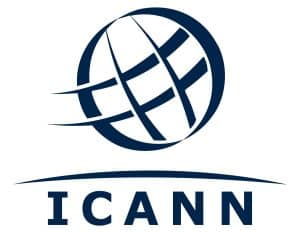
ICANN Launches Global Service to Simplify Requests for Nonpublic Domain Name Registration Data
In a move that promises to revolutionize how we access online information, the Internet Corporation for Assigned Names and Numbers (ICANN) has just rolled out the Registration Data Request Service (RDRS). This cutting-edge service is poised to become a game-changer, simplifying the process of accessing nonpublic registration data related to generic top-level domains (gTLDs). And guess what? It’s not just for tech gurus; it’s for everyone with a legitimate interest!
Gone are the days of navigating complex processes to get hold of essential data. With personal data protection laws now requiring ICANN-accredited registrars to redact personal data from public records, the once easily accessible “WHOIS” databases have become a labyrinth for the curious minds. But fear not, the RDRS has emerged as the beacon of simplicity and standardization in this digital maze.
A One-Stop Shop for Everyone
In a digital landscape filled with complexities, the Registration Data Request Service (RDRS) emerges as a beacon of accessibility for a diverse array of individuals and professionals. Far beyond catering solely to the tech-savvy, the RDRS is a global, free, and all-encompassing one-stop-shop ticketing system, orchestrating a symphony of simplified access for law enforcement, cybersecurity professionals, intellectual property experts, consumer protection advocates, and government officials alike.
Accessibility Across Professions
The RDRS isn’t playing favorites; it’s opening its doors wide to a multitude of sectors. For law enforcement, the service acts as a digital ally, providing a streamlined avenue to access nonpublic generic top-level domain (gTLD) registration data. This means quicker and more efficient ways to investigate and respond to cyber threats, online crimes, and other illicit activities.
Cybersecurity professionals find a valuable ally in the RDRS, as it equips them with a straightforward mechanism to gather crucial data in the ongoing battle against online threats. With the service, they can navigate the labyrinth of nonpublic gTLD registration data with ease, bolstering their efforts to secure the digital realm.
Intellectual property experts, too, find solace in the RDRS. By simplifying the process of accessing nonpublic data, it becomes an indispensable tool for protecting trademarks, patents, and copyrights in an increasingly digital world. The service acts as a guardian, ensuring the relevant data is within reach when needed.
Consumer protection advocates can now navigate the digital landscape with greater precision. The RDRS allows them to swiftly access information vital for safeguarding consumer rights, ensuring fair trade practices, and addressing any potential threats to the public.
Government officials, entrusted with ensuring the safety and well-being of their citizens, can now rely on the RDRS as a crucial resource. Whether it’s for national security concerns or regulatory purposes, the service offers a streamlined process for accessing nonpublic gTLD registration data.
The RDRS Advantage
At the heart of the RDRS’s brilliance is its seamless functionality. Acting as a matchmaker between those seeking nonpublic data and the relevant ICANN-accredited registrars participating in the program, it eradicates the hassle of navigating multiple channels. Instead, it unifies the entire process through a single, user-friendly platform.
Imagine a platform where the complexities of accessing nonpublic gTLD registration data fade away. The RDRS is precisely that—a hub that simplifies and standardizes the request process. No more grappling with intricate procedures or deciphering convoluted forms. Instead, the service ensures a straightforward and consistent experience for all users, regardless of their technical expertise.
The RDRS doesn’t just connect dots; it creates a highway of accessibility, allowing professionals and advocates from various fields to seamlessly access the information they need. It’s a digital equalizer, leveling the playing field and empowering individuals and organizations to navigate the intricate web of nonpublic gTLD registration data with confidence and ease.
How Does It Work?
Curious how this magic happens? The RDRS, a global ticketing system, facilitates the smooth flow of nonpublic gTLD registration data requests. Forget about grappling with multiple forms; the RDRS ensures a consistent and standardized format, making life easier for requestors.
But, and it’s a big but, the service doesn’t guarantee access to requested registration data. All the nitty-gritty of data disclosure happens outside the system, maintaining a secure environment for information exchange.
Benefits Galore!
The RDRS isn’t just a convenience for users; it’s a game-changer for ICANN-accredited registrars too. With a mechanism to manage and track all nonpublic data requests in one place, registrars can bid farewell to the chaos of scattered information. Automated alerts ensure they never miss a beat when a request is submitted.
And here’s the kicker for users—no more juggling between pending and past requests. The RDRS centralizes it all, offering a hassle-free platform for accessing, creating, and canceling requests. Talk about convenience!
Why You Should Care
This groundbreaking service isn’t just a whim of ICANN; it’s a strategic move to gather valuable data. The ICANN Board initiated the RDRS to collect usage data, crucial for shaping future policy decisions related to a System for Standardized Access/Disclosure. The more registrars and requestors hop on the RDRS bandwagon, the more accurate and valuable this data becomes.
Don’t be left in the dark! Dive into the future of simplified data access by visiting ICANN’s RDRS page.
Additional Info about the RDRS